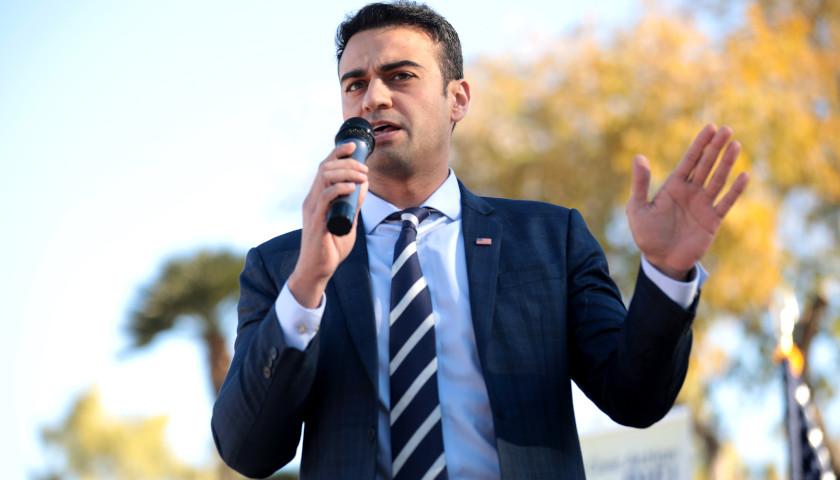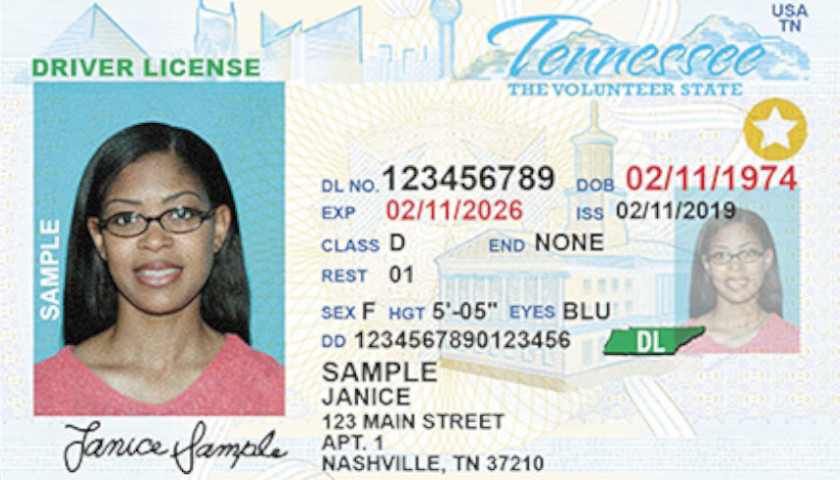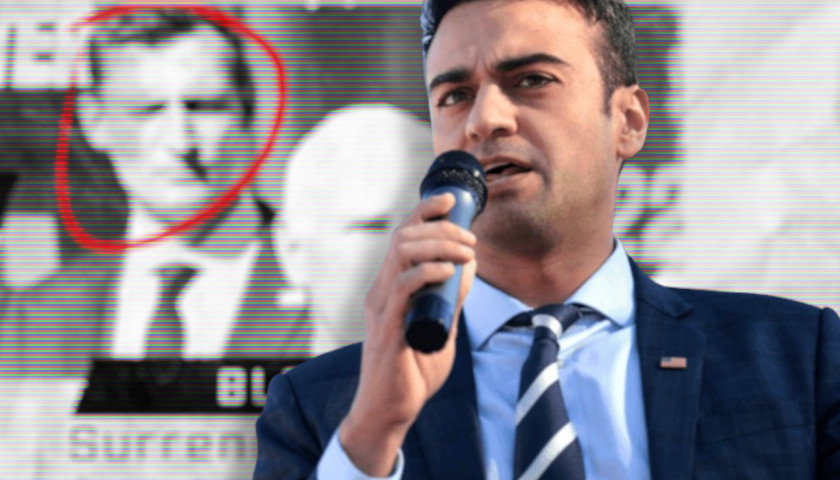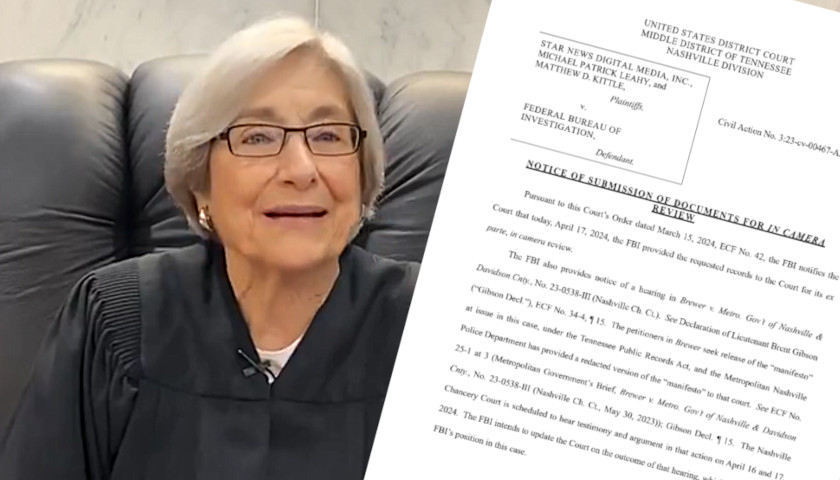Abe Hamadeh and AZ Voters Rights filed a Complaint in Special Action against Maricopa County this week demanding that the court issue a writ of mandamus ordering the county to decertify the Maricopa County and Arizona canvass for the 2022 general election race for attorney general. Hamadeh has been challenging the outcome of his loss in that race in court, uncovering evidence during the litigation of votes that were not counted, decreasing his loss to only 280 votes. The trial court judge refused to give him a new trial based on the newfound evidence, which he has appealed.
Hamadeh posted on X about the new lawsuit, “Our elections are a mess and our laws are being violated. We must fix this prior to the 2024 election or our elections will continue to be in doubt. I promised Arizona that I would never stop fighting for the integrity of our votes. I won’t back down.”
Our elections are a mess and our laws are being violated. We must fix this prior to the 2024 election or our elections will continue to be in doubt.
I promised Arizona that I would never stop fighting for the integrity of our votes. I won’t back down.
⬇️🚨 New LAWSUIT 🚨⬇️ pic.twitter.com/NbmTuzRDHr
— Abe Hamadeh (@AbrahamHamadeh) November 8, 2023
The complaint, which was drafted by attorney Ryan Heath of The Gavel Project, argued that votes “were not counted due to various wrongful acts by Maricopa County officials — which disproportionately impacted Election Day voters, the majority of whom were Republicans and conservative leaning independent voters.”
Hamadeh explained the wrongful acts in the brief, “The Election Day voting for the 2022 General Election in Maricopa County was plagued by issues that the Maricopa Defendants caused by not testing the election centers’ OKI Data B432 Ballot on Demand (‘BOD’) printers under conditions simulating those that were likely to occur on Election Day and by using 20-inch, 100 lb. paper — even though Maricopa County officials knew or should have known that this combination of paper size and weight exceeded the capabilities of the OKI B432 printers especially for printing double-sided ballots.”
The complaint noted that the county repeatedly claimed that only 60 out of 223 vote centers experienced the printer problems, but even the county’s own investigator, former Arizona Supreme Court Justice Ruth McGregor, questioned that assertion. Hamadeh said 59 percent of vote centers were affected, more than twice as many as the county admitted.
The complaint contended that poll workers were not properly trained to instruct voters on how to check out and vote elsewhere when the tabulators failed to read their ballots.
“It has been credibly estimated that 20% of the voters who had been waiting in long lines left the lines without casting their ballots,” Hamadeh said. “Many other voters who learned of the chaos were likely dissuaded entirely from trying to vote.”
The complaint also asked for a declaratory judgment stating that the county’s failure to conduct proper testing on the equipment violated the law and for an injunction prohibiting the county from failing to test the equipment. It asserted that voters’ equal protection and due process rights were violated.
Although Hamadeh’s first election challenge hasn’t had much success so far, winding its way through the courts, new developments have come out since the trial court judge ruled against him. On September 1, Yavapai Superior Court Judge John Napper issued a ruling finding that Maricopa County violated the law by comparing voters’ signatures on mail-in ballot affidavits to signatures other than the original ones on their voter registrations.
Hamadeh said, “If the reasoning of that case is properly applied to the 2022 General Election in Maricopa County, the County will be required to re-examine over 1.3 million mail-in ballot signatures against the voters’ correct registration record signatures or there will have to be a re-vote or some other remedy.”
The complaint featured several voters who were disenfranchised and said there were far more they’d spoken with. An elderly woman named Peggy Weiman stopped by multiple voting locations, but due to her health problems, was unable to stand in line for very long and left without voting.
Similarly, Dawn Lee waited in line for hours but needed to use the restroom, so she had to leave and never voted. Tona Jackson waited in line at two separate instances at one of the most backed-up locations in Anthem, which exceeded three hours in line for many voters, but she finally had to leave, unable to vote.
Voter Duane White said the tabulator repeatedly rejected his ballot, so it was placed in “Door 3,” a receptacle for ballots that were unable to be read. Those ballots were taken to Maricopa County Tabulation and Election Center for tabulation later that evening. White lives five minutes from the vote center. He immediately went home and looked to see if his ballot was counted, and it was, even though that was impossible. All of the voters said they intended to vote for Hamadeh.
Hamadeh pointed out, “Those long lines of voters waiting to cast their ballots could have been avoided if the non-technical aspects of the 2019 Arizona Secretary of State Elections Procedure Manual (‘EPM’) had been followed and had the requirement of binding Arizona statutory law been met by the Defendants.”
The complaint went over all the ways the EPM was violated, including not certifying the equipment, “not efficient,” and not “function for all types of elections.” Violation of the EPM is a class 2 misdemeanor.
The complaint repeatedly emphasized that the wrongdoing by the county consisted of “non-technical violations of Arizona statutes and the EPM.” Election case law in Arizona set that as the standard for overturning elections. The complaint also emphasized the principle established in the landmark Arizona election case Miller v. Picacho Elementary Sch. Dst. No. 33. The court held, “[E]lection statutes are mandatory, not ‘advisory,’ or else they would not be law at all.”
In his main complaint challenging the election results, Hamadeh filed his opening brief on appeal with the Arizona Court of Appeals in early October after the trial court judge refused to grant him a new trial based on new evidence showing votes were not counted in Pinal County. Then-Secretary of State Katie Hobbs knew about the “undervotes,” which the tabulating machines failed to count, but did not inform Hamadeh or the public until after his trial was over. The newly found votes decreased his loss to only 280 votes, so Hamadeh wanted to determine whether there were undervotes in other counties as well.
– – –
Rachel Alexander is a reporter at The Arizona Sun Times and The Star News Network. Follow Rachel on Twitter / X. Email tips to [email protected].
Photo “Abe Hamadeh” by Gage Skidmore. CC BY-SA 2.0.








